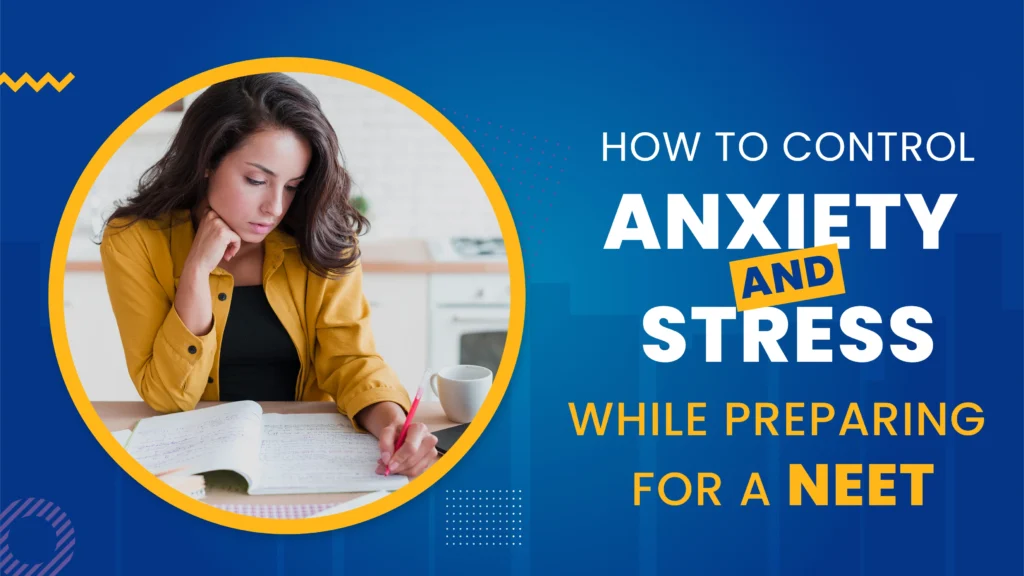Many students find that preparing for the National Eligibility Cumulation Entrance Test (NEET) causes tension and anxiety. India’s NEET exam is fiercely competitive, and the pressure to succeed can be debilitating. However, there are several techniques that students can employ to control their tension and anxiety while preparing for the NEET. The best ways to manage stress and anxiety while preparing for the NEET will be covered in this blog.
Organize your study time
Making a study schedule is one of the best strategies to control stress and anxiety while preparing for the NEET. Your ability to stay organized and focused can help you feel less overwhelmed and nervous. Every subject and topic should have its own time in your study calendar, including breaks, downtime, and self-care. Be sure to follow your timetable and refrain from putting things off.
Practice being mindful
Concentrating on the current moment and embracing your sensations and thoughts without passing judgement on them are key components of the mindfulness practise. According to research, practising mindfulness can help people feel less stressed and anxious. You can practise mindfulness while preparing for the NEET by taking brief breaks to concentrate on your breath, physical sensations, or surroundings. You can also try mindfulness meditation, which is sitting still and paying close attention to your breath for a certain amount of time.
Obtain enough rest
For managing stress and anxiety, sleep is crucial. Lack of sleep causes your body to create more stress chemicals, which increases your feeling of anxiety and stress. Establish and adhere to a regular sleep routine if you want to get enough sleep while studying for the NEET. To get the 7-9 hours of sleep you need each night, try to avoid using devices or doing homework in bed.
Regular exercise
Exercise is a healthy way to relieve stress and can lessen anxiety. Make sure to integrate regular exercise into your study plan as you prepare for the NEET. This might be as simple as engaging in a team sport, yoga, stretching, or a quick walk or jog. Exercise not only helps you feel better mentally and physically but also lowers your levels of tension and anxiety.
Eat a balanced diet
For controlling stress and anxiety, a healthy, balanced diet is crucial. Be sure to have regular, balanced meals that are high in fresh produce, whole grains, lean protein, and healthy fats while preparing for the NEET. Avoid processed foods that are high in sugar, and restrict your consumption of alcohol and caffeine, as these substances might make you feel more anxious and stressed.
Take breaks and look after yourself
Take frequent breaks and engaging in self-care are crucial for controlling stress and anxiety when preparing for the NEET. Make sure to build breaks into your study routine, and utilize this time to engage in enjoyable activities like reading, enjoying music, or socializing with loved ones. Having a hot bath, getting therapy, or doing something else to help you unwind and recharge are additional ways to practice self-care.
Seek assistance
Furthermore, if you are experiencing stress or exhaustion while preparing for the NEET, it is crucial to get help. This can be getting in touch with a support network for students studying for NEET, speaking with a trustworthy friend or relative, or seeking counseling or therapy. You can also speak with your professors or academic advisors for advice and support.
Conclusion: In summary, preparation for NEET can be difficult and anxiety-inducing, but students can use several techniques to control their stress and worry. Students can lessen their emotions of overwhelm and anxiety and increase their chances of doing well on the exam day by planning their studies, utilizing mindfulness techniques, getting adequate sleep, exercising frequently, eating
